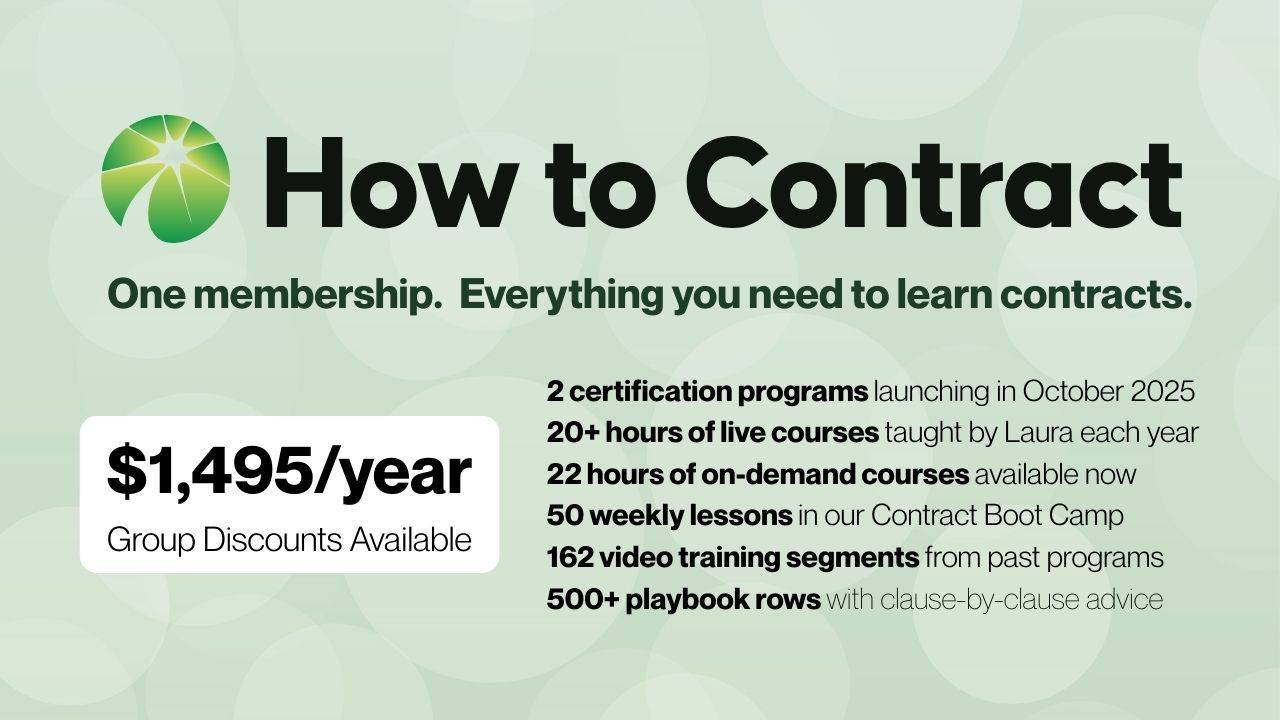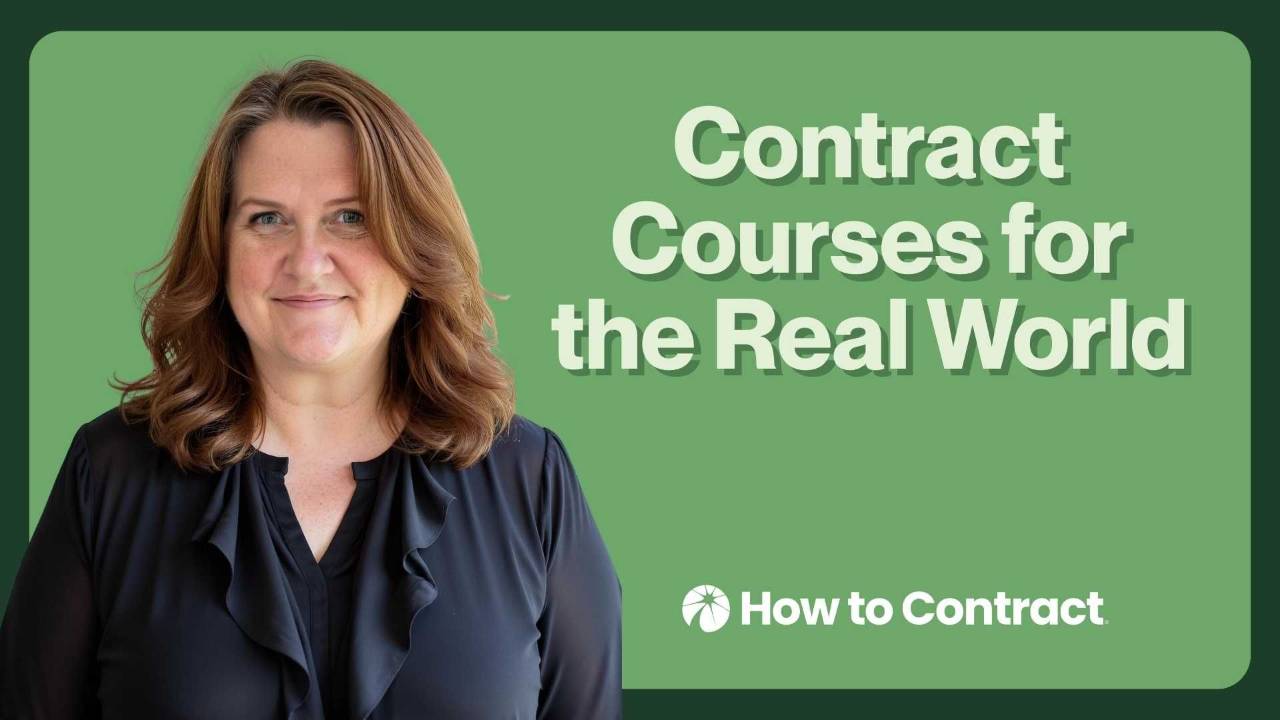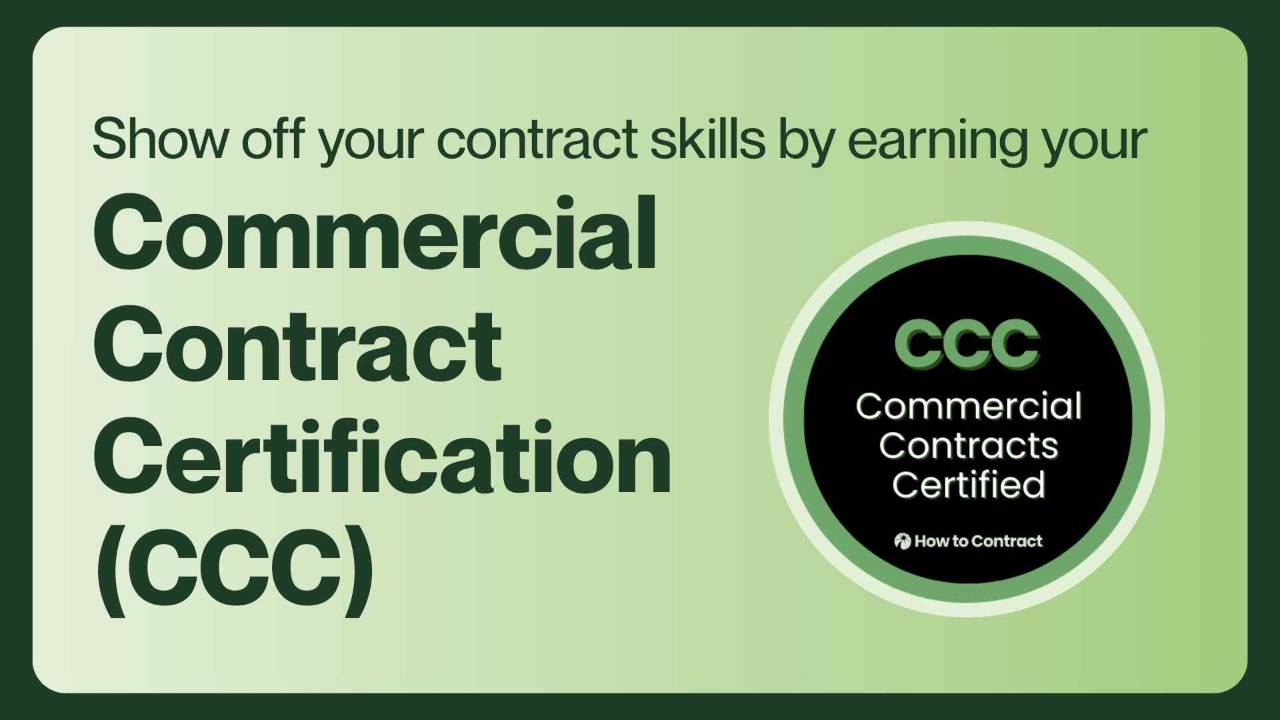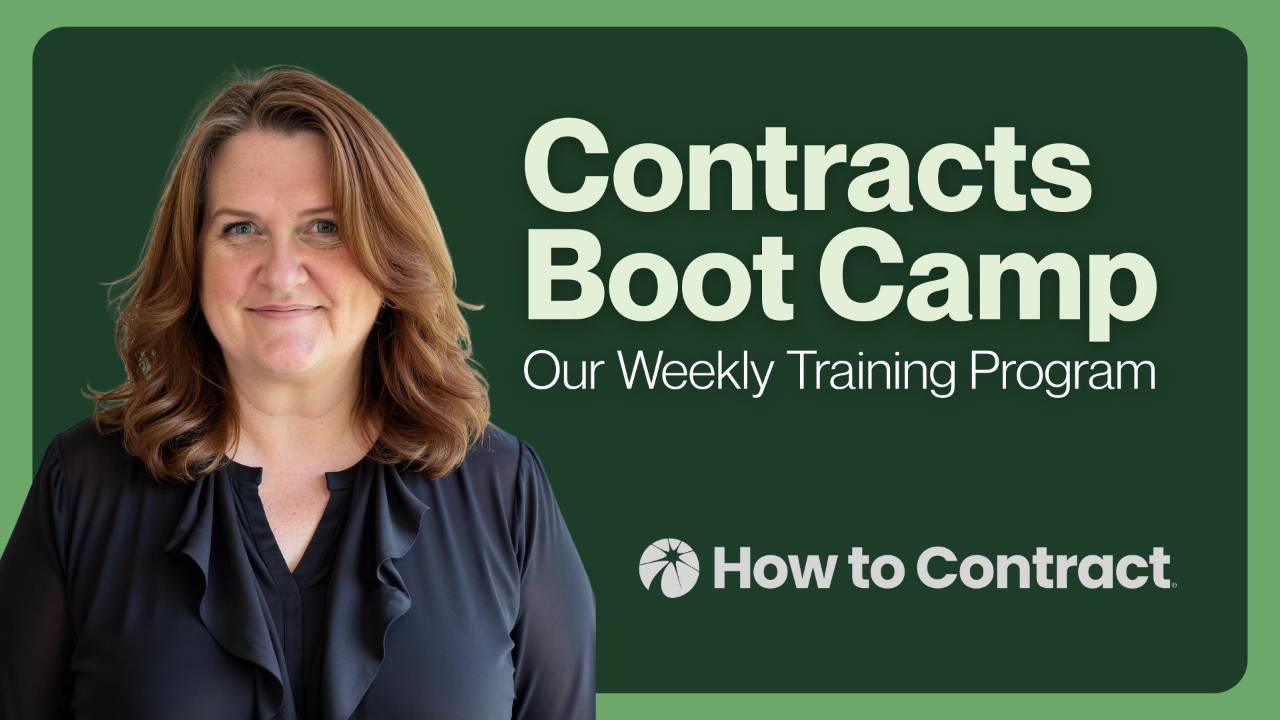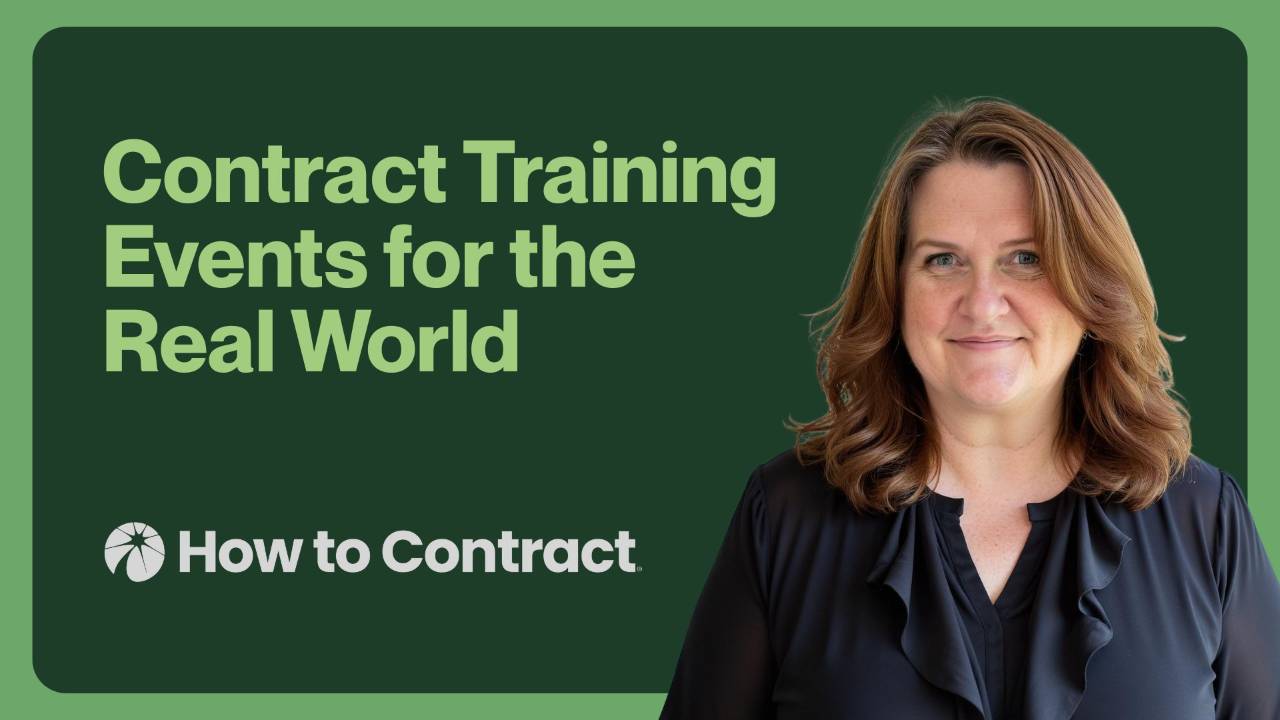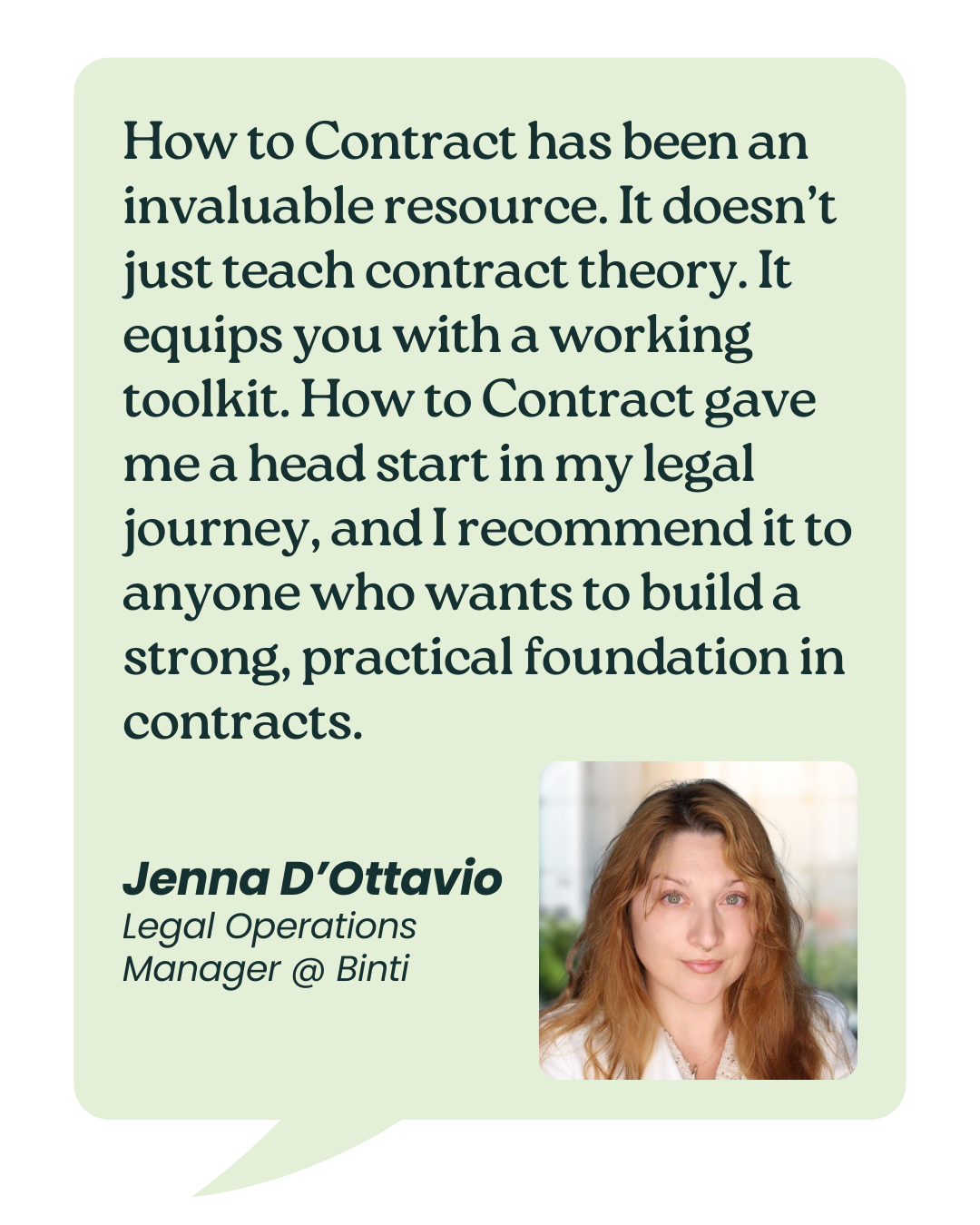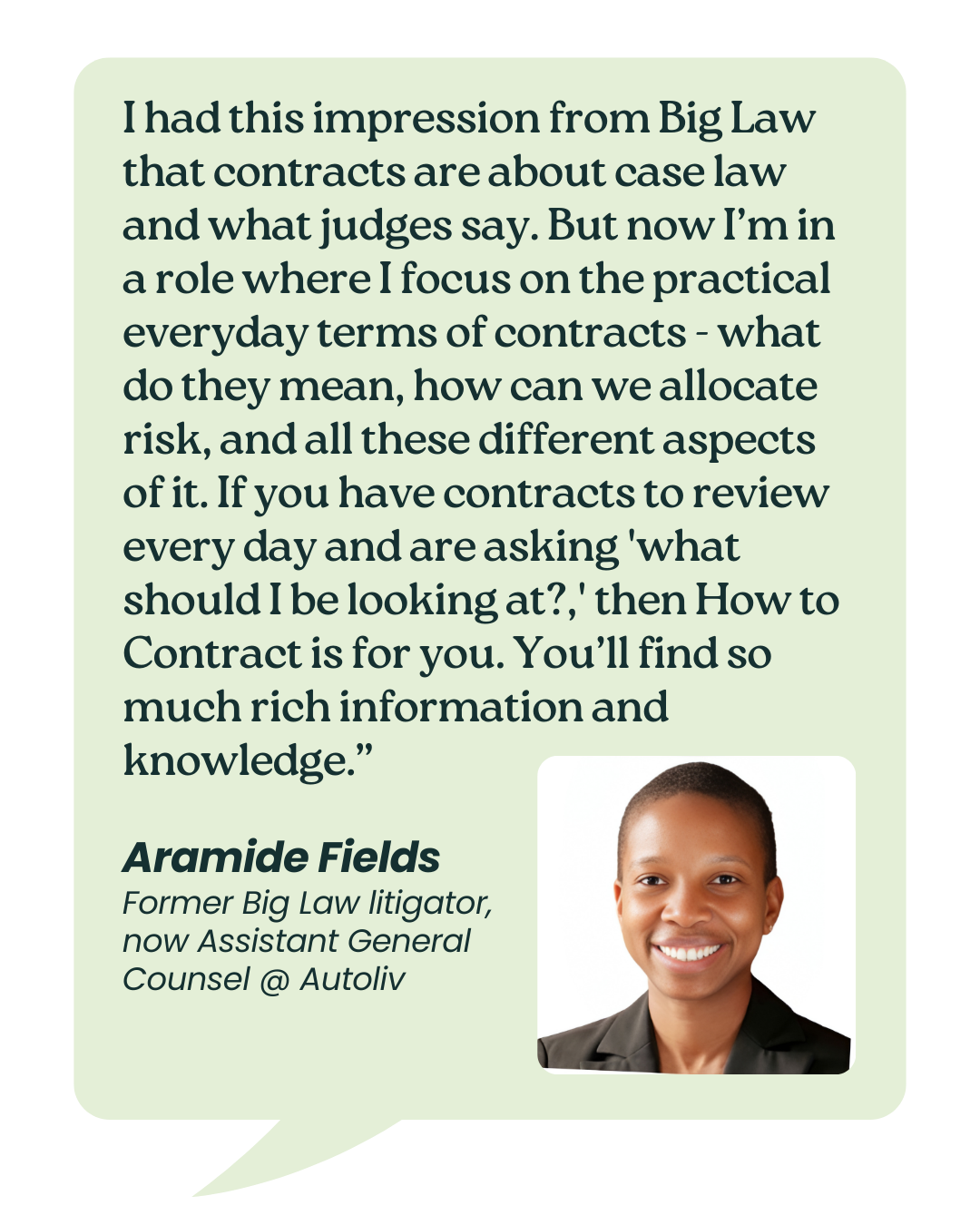
How I Contract: An Interview With Gabriel Lau, Senior Corporate Counsel at Notable
We interviewed Gabriel Lau, Senior Corporate Counsel at Notable. This interview is part of the How I Contract interview series with experienced contract lawyers and professionals who share their experience and advice for working with contracts.
The Journey to a Career in Contract Law
Can you tell us a story about what brought you to this specific career path? How did you start working with contracts?
Thank you so much for having me, it’s an honor to speak with you!
So, lawyering is my third career pivot. Out of undergrad, I worked in biotech doing gene therapy research but always had an interest in the business.
So after a couple of years working in a lab, I joined with a friend to co-found an early SaaS company. I loved the fast pace of being at a tech startup, and, not having the right technical background, I gravitated toward the business side, working on sales, building industry partnerships, and managing employees.
Fast forward seven years, and I was burnt out and in need of a change. I wanted to stay connected to tech and startups, so I ultimately decided to go to law school to understand the legal basis of business operations.
In my 1L summer, I did an internship at Duane Morris Vietnam, where I stumbled through redlining my first few contracts. In my 3L year, I was lucky enough to land a legal internship at Taulia, a FinTech startup, which turned into my first post-graduate/post-bar job.
I got to try a lot of different types of in-house legal work but found that I just loved negotiating contract terms the most.
I joined Autodesk after two years to hone my contracting skills serving the company’s procurement team.
What Makes Contracts Exciting and Challenging
What do you like about contracts? Why?
It’s a combination of things really.
I love the negotiation aspect and getting to “yes” probably the most.
Next, the editor in me loves to work with contract language and craft language that fits the scenario and how the parties intend to interact.
It’s part chess match, part collaborative building with your counterparty(ies), part technical construction like coding (with contracts being much more forgiving on syntax).
Great contracting and negotiation can be a very mentally stimulating practice.
What is the most irritating thing about contracts? Why?
On a procedural level, I find adapting/integrating text from one or more sources the most laborious, with the need to harmonize terms and language.
Sometimes reformatting is a necessary, but painful task.
On a macro level, much of the work you put into a specific contract will (hopefully) never be fully appreciated. Few people read a finished contract until something goes wrong. Even then only relevant sections ever get reviewed.
I like to say that contracts attorneys spend their time writing rules for a game no one wants to play.
The Ideal First 30-Day Plan for Contract Lawyers
What should your first 30-day plan look like when you start working with contracts?
I recommend ensuring you understand the basic concepts around contracts first.
Foundationally, one needs to understand contract formation and baseline remedies available for different types of breaches.
Next, understand the mechanics of interpreting contract language, construction, and integration (i.e. what additional terms form the actual agreement, battle of the forms, etc.).
Then work on getting a really good understanding of typically negotiated contract terms like representations and warranties, indemnities, and limitations of liability.
Finally, understand the mechanics of the subject matter of the contract and the potent issues in that subject matter. For example, SaaS contracts present different risks from on-premise software or professional services contracts.
Try to get an understanding of what will happen under a particular contract from all parties, as their views and concerns will likely differ in key ways which will be important when actually negotiating the legal terms.
Top Resources for Learning Contracts and Negotiation
How did you learn contracts? Could you share specific steps you took and learning resources you used? What learning mistakes did you make along the way?
I got a lot of help from my early mentors, so I highly recommend working with senior attorneys when first starting out. They can provide pointers on style, negotiation technique, and subject matter insight that is not easy to find elsewhere.
There are also tons of other resources to use.
My first managing attorney lent me a copy of Working with Contracts by Charles M. Fox, and it was a great primer.
I read it, then started reading my first client contracts, taking time to note key concepts and language I didn’t understand.
It probably took me an hour per page when I first started reviewing.
I created an issues list and went to work on drafting redlines for my manager to review.
As I got into redlining, I read a lot of Ken Adam’s “Adams on Contracting” blog for style and word choice tips and tricks. He usually had a post on point for any burning question that came up — he is truly a great resource.
When I started my in-house internship, I read The Tech Contracts Handbook: Cloud Computing Agreements, Software Licenses, and Other IT Contracts for Lawyers and Businesspeople by David W. Tollen, which I recommend for anyone negotiating technology transactions.
I also took the Cloud Contracting workshop by International Computer Negotiations (ICN), which went a little more in-depth on a range of technology contracting concepts and helped provide a familiarity with different deal types and potential issues to spot.
I also highly recommend taking courses on negotiation to understand basic strategies (BATNA, WATNA, etc.).
Getting to Yes by Robert Fisher and William Ury is a great starting place, and Slate has a great Negotiation Academy podcast series for a crash course.
The Program on Negotiation by Harvard Law School also has a wealth of articles and resources available on its website.
For insight into how high-stakes negotiations can be approached, I recommend Never Split the Difference by former FBI hostage negotiator Chris Voss.
Finally, personal persuasiveness is a key ingredient to successful negotiation, and I highly recommend the Charisma Myth by Olivia Fox Cabane to understand how to enhance charisma and improve persuasiveness.
Common Mistakes in Contracts and How to Fix Them
What mistakes should contract lawyers and professionals avoid when working with contracts? If you have a story to share, please do :)
Never assume a defined term retains the meaning of its plain-language brethren!
I once spent several rounds of pushing on indemnities and limitations of liability because I thought a particular risk was implicated by an indemnity using a defined term.
I finally looked back to the definition which was much more narrow than I had presumed.
So the issue I had been arguing was not actually implicated.
What should you do after you make a mistake in a contract? Could you give an example of a specific wording you would use to inform others about that mistake?
Mistakes happen to everyone!
Generally, I find it best to own up to a mistake and work as quickly as possible to clarify with the counterparty(ies) and my client as soon as it’s discovered, even if it's after signing.
If the contract has already been signed, send an amendment with the corrected language out for review and signing as soon as possible. If it’s still in redline, send an updated redline ASAP.
Usually a comment like, “Upon more careful review, I realized that this clause doesn’t quite capture what we discussed and I have amended it for your review” or “My apologies for this typo!” will suffice.
Mastering Contract Management: Tips and Strategies
What is your #1 contract management tip? Why?
I keep separate folders for each counterparty and make subfolders for each master agreement with that counterparty.
In each subfolder, I keep every version with a descriptive title and revision date.
This way I have the negotiation history for each agreement in one place, along with any sub-agreement documents like order forms, SOWS, exhibits, etc.
These histories can be extremely helpful for deal history when it is time to renew or amend a contract.
What is the one burning question you had when you started working with contracts and how would you answer it now?
Q: “How do I review contracts faster?”
A: Go slowly first to go fast.
When I started out, I spent at least an hour per contract page in my initial review to understand how everything worked (or didn’t work) together.
Putting the time in to build my foundational knowledge helped immensely with understanding how contracts tend to operate, and now allows me to review much more quickly and insightfully.
Skill and speed get built on the number of contracts you have understood, not just on how many you’ve read.
If you could give just one contract tip, what would that be?
Mind your definitions, as these are the most important lever to determine if a clause, obligation, or other provision applies.
What mistakes should you avoid in contract negotiation?
Avoid going into a negotiation unprepared!
You need to understand at least the basics of your positions, the acceptable boundaries of those positions, and your target outcomes.
You also need to be on the lookout for where you have leverage, and how to increase leverage.
If working on a team, the whole team needs to be in sync when communicating with counterparties.
Also, mind your own psychology — be careful not to fall into mental traps. For example, try to avoid being swayed by high-pressure techniques and more subtle manipulations.
Reciprocation can be a key driver in getting to yes, but be intentional about when you reciprocate, and when you try to induce reciprocation.
A great negotiated deal will be the product of both integrative and distributive negotiation.
Avoid using only one of these two approaches.
What are you most proud of in your contracts journey?
I think that I’m most proud that I’ve been around long enough to understand and appreciate so many different facets of contracting.
There really is a lot of art to the process, from effectively understanding a client’s needs, concerns, and tolerances, to negotiating with counterparties, and to the actual collaborative drafting of a contract.
Debunking Common Myths About Contracts
What is the biggest myth about contracts you’d like to debunk? Why?
“Boilerplate” doesn’t really exist.
Every clause and provision has meaning and provides context.
They may be superfluous, overwrought, commonplace, or even poorly copied from another template, but each word still has meaning and effect and may influence potential litigation that may arise.
How can you know you are great at contracts? What makes one a great contracts lawyer or professional?
I think it comes down to happy clients.
You're doing well when you can get to “yes” efficiently within acceptable bounds, meeting deal goals, without nasty surprises.
When the counterparty(ies) is (are) also mostly happy, you’re probably doing great.
What advice would you give to your younger self when you started working with contracts?
Not making mistakes is impossible, but not fixing or mitigating them is unforgivable.
Could you share the biggest lesson you’ve learned while working with contracts?
A contract should do three things.
1. Be a roadmap that details intended future events.
2. Be a vehicle to align parties on a common goal.
3. Be the guide to help settle disputes.
Who are your contract mentors you are grateful to? Why?
Denny Cowger — for introducing me to contracts and giving me a solid foundation to build upon.
Kathleen Ansari — for trusting me with and guiding me through my first negotiations.
Bart Selden — for helping me learn style and grace in practice.
Joe Reif — for letting me refine my practice.
Thank you, Gabriel!
How to Contract's membership is designed to help you build real-world expertise with commercial contracts. Get access to our comprehensive system of live and on-demand courses, weekly lessons, detailed playbooks, and more. Join today!

